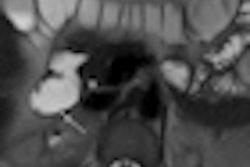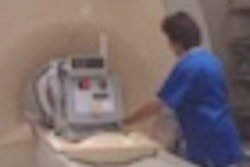
NEW YORK (Reuters Health), Sep 1 - Hormone replacement therapy after menopause may interfere with the accuracy of mammograms used to screen for breast cancer -- and the risk may be greater with hormones delivered by patch or injection compared with pills, a new study finds.
The findings, reported in the journal Menopause, add to the body of evidence that hormone replacement therapy (HRT) makes mammograms more difficult to interpret. And they also contradict the theory that HRT patches and injections might be less likely to cause problems than pills.
In addition, the study found that a newer type of hormone therapy used in some countries -- a drug called tibolone, which has weak estrogenlike properties -- seemed to affect mammogram accuracy just as much as conventional HRT did.
Using data from nearly 173,000 Danish women who underwent screening mammography between 1993 and 2007, researchers found that current hormone users were more likely to have a false-positive result than women who had never used HRT.
Of 39,104 women on HRT at the time of the mammogram, 602 -- or about 1.5% -- had a false positive, meaning they turned out not to have cancer on further testing. That compared with 0.8% of the 133,638 women who had never used hormone therapy.
When the researchers looked at the various types of hormone therapy, they found that women using patches with combination estrogen-progesterone replacement, as well as those on injections of estrogen only, had about twice the false-positive risk of women using oral HRT.
Most women on HRT, regardless of the type, did not have a false positive. Of the 529 women on estrogen-progesterone patches, for example, 16 had a false positive.
And since this is the first study to find relatively greater risks associated with certain types of HRT, it is too soon to advise women to take oral forms in order to curb the chances of false-positive mammogram, according to the lead researcher on the work.
"Data are needed from other studies before general advice can be given on what kind of hormone is the safest," Dr. Sisse H. Njor, of the University of Copenhagen, told Reuters Health in an e-mail.
The problem with HRT appears to be the fact that it increases breast density. After menopause, women's breast tissue generally becomes less dense and more fatty; but women on HRT tend to have breast density that is more similar to younger women.
On mammograms, Njor explained, tumors appear as "bright" spots, whereas fat tissue appears dark. Dense breast tissue, on the other hand, also appears bright, which makes mammogram interpretation more difficult.
The theory had been that HRT delivered by patch or injection might be less likely to cause problems than pills because those forms might have a less extensive effect on tissues throughout the body, including breast tissue.
"Our results did not support the hypothesis," Njor said. Exactly why combination patches and estrogen injections were linked to an increased risk of false positives is unclear. Differences in how the various forms of HRT affect women's hormone fluctuations might play a role, the researchers speculate.
Because of the established link between HRT and reduced mammogram accuracy, experts generally say that doctors and women should be aware of the risk, but that should not stop women from having mammography screening.
Studies indicate that once a woman stops using HRT, the odds of having a false-positive mammogram go down -- though it is not clear how long it typically takes for those odds to reach the level of women who have never used HRT, according to Njor.
"We are currently working on answering the question of how long current users should stop taking hormones before the false-positive risk is similar to the risk among never users," the researcher said.
In a 2008 study, U.S. researchers found that among women who had been on oral HRT for about five years, the odds of an inaccurate mammogram declined after women stopped taking the hormones, but were still higher than never-users' after one year.
As for HRT itself, fewer women are using it since 2002, when a large U.S. study linked HRT to increased risks of heart attack, stroke, breast cancer, and blood clots.
Experts now advise that while HRT is effective at relieving menopausal symptoms -- like hot flashes and vaginal dryness -- women should take it at the lowest dose and for the shortest time possible.
By Amy Norton
Source: http://link.reuters.com/pyv48n
Menopause, online August 19, 2010.
Last Updated: 2010-08-31 11:24:09 -0400 (Reuters Health)
Related Reading
As HRT use declines, atypical ductal hyperplasia rates also fall, November 11, 2009
Hormone use for just 3 years ups lobular breast cancer risk, January 15, 2008
Breast cancer risk with HRT may be small, August 8, 2005
Copyright © 2010 Reuters Limited. All rights reserved. Republication or redistribution of Reuters content, including by framing or similar means, is expressly prohibited without the prior written consent of Reuters. Reuters shall not be liable for any errors or delays in the content, or for any actions taken in reliance thereon. Reuters and the Reuters sphere logo are registered trademarks and trademarks of the Reuters group of companies around the world.


















